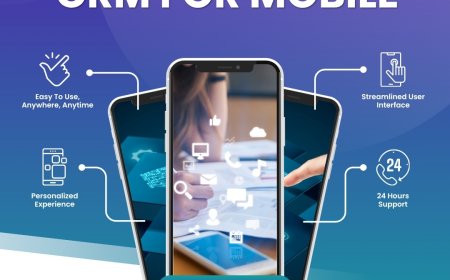How to Hunt Jobs in Fort Worth Healthcare
How to Hunt Jobs in Fort Worth Healthcare The healthcare industry in Fort Worth, Texas, is one of the most dynamic and rapidly expanding sectors in the region. With a population exceeding 950,000 and a metropolitan area reaching over 4.5 million, Fort Worth offers a robust ecosystem of hospitals, clinics, specialty care centers, long-term care facilities, and biomedical research institutions. As t
How to Hunt Jobs in Fort Worth Healthcare
The healthcare industry in Fort Worth, Texas, is one of the most dynamic and rapidly expanding sectors in the region. With a population exceeding 950,000 and a metropolitan area reaching over 4.5 million, Fort Worth offers a robust ecosystem of hospitals, clinics, specialty care centers, long-term care facilities, and biomedical research institutions. As the city continues to grow—driven by economic development, an aging population, and increased demand for quality medical services—the need for skilled healthcare professionals has never been higher. Whether you’re a recent graduate, a licensed nurse transitioning from another state, a medical technician seeking advancement, or an administrative professional looking for stability in a thriving market, hunting for healthcare jobs in Fort Worth requires strategy, persistence, and local insight.
This guide is designed to equip you with a comprehensive, step-by-step roadmap to successfully navigate the Fort Worth healthcare job market. Unlike generic job search advice, this tutorial is tailored specifically to the nuances of healthcare hiring in North Texas—covering regional employers, licensing requirements, networking channels, and digital tools that matter most. By following the methods outlined here, you’ll not only increase your chances of landing a position but also position yourself for long-term career growth within one of the most resilient industries in the country.
Step-by-Step Guide
1. Assess Your Qualifications and Career Goals
Before you begin applying to jobs, take time to evaluate your credentials, certifications, and professional aspirations. Fort Worth’s healthcare landscape includes a wide range of roles—from clinical positions like registered nurses, radiologic technologists, and physical therapists, to non-clinical roles such as health information managers, medical coders, and healthcare administrators.
Start by listing your current qualifications: What licenses do you hold? Are they valid in Texas? If you’re coming from out of state, verify whether your credentials require reciprocity or additional exams. For example, nurses must pass the NCLEX-RN and apply for licensure through the Texas Board of Nursing. Similarly, medical assistants may need certification through the American Association of Medical Assistants (AAMA) to be competitive.
Next, define your career goals. Are you seeking a position in a large academic medical center like Texas Health Resources, or do you prefer the community-focused environment of a local clinic? Do you want to work in emergency care, pediatrics, mental health, or home-based services? Your goals will determine where to focus your job search and which employers to prioritize.
2. Research Top Healthcare Employers in Fort Worth
Fort Worth is home to several major healthcare systems that dominate the regional job market. Understanding who the key players are will help you target your applications effectively.
Texas Health Resources is the largest healthcare provider in the region, operating multiple hospitals including Texas Health Harris Methodist Hospital Fort Worth, Texas Health Presbyterian Hospital, and numerous outpatient centers. They hire across clinical, technical, and administrative roles and frequently post openings on their dedicated careers portal.
Children’s Health, while headquartered in Dallas, maintains a significant presence in Fort Worth with clinics and specialized pediatric services. They offer roles in nursing, therapy, social work, and child life specialists.
UT Southwestern Medical Center has expanded its footprint in North Texas with satellite clinics and research partnerships in Fort Worth. If you’re interested in academic medicine, research, or advanced clinical training, this is a critical employer to monitor.
Fort Worth VA Medical Center is a major federal employer offering stable positions in nursing, mental health, pharmacy, and administrative support. Veterans Affairs jobs often come with strong benefits and opportunities for advancement.
Smaller but growing employers include Presbyterian Healthcare Services, Methodist Healthcare System, and Community Health Choice, which provide opportunities in managed care, primary care, and community outreach.
Make a list of these organizations and bookmark their career pages. Set up job alerts where available. Many of these institutions update openings daily, and early applicants often have a significant advantage.
3. Optimize Your Resume for Healthcare Hiring
Healthcare employers in Fort Worth use applicant tracking systems (ATS) to screen resumes before human review. Your resume must be formatted to pass these systems while still resonating with hiring managers.
Use clear section headers: Professional Summary, Licenses & Certifications, Work Experience, Education, and Skills. Avoid graphics, columns, or fancy fonts—ATS cannot read them.
Quantify your achievements. Instead of writing “Managed patient care,” write “Provided direct care to 15+ patients per shift in a 40-bed med-surg unit, maintaining a 98% patient satisfaction score over six months.”
Include keywords from job descriptions. If a posting mentions “EMR documentation,” “infection control protocols,” or “interdisciplinary care teams,” make sure those exact phrases appear in your resume. Many candidates are filtered out simply because their resumes lack the right terminology.
For clinical roles, list your licenses prominently at the top. For example:
- Registered Nurse (RN) – Texas Board of Nursing, License
123456
- BLS & ACLS Certified – American Heart Association
- EMR Proficient: Epic, Cerner, Meditech
Non-clinical candidates should highlight compliance knowledge, regulatory experience (HIPAA, OSHA), and any project management or process improvement initiatives they’ve led.
4. Leverage Local Job Boards and Healthcare-Specific Platforms
While general job boards like Indeed and LinkedIn are useful, Fort Worth healthcare hiring often happens on niche platforms.
Texas Health Careers (texashealthcareers.com) aggregates openings from Texas Health Resources and affiliated facilities. It’s the most reliable source for jobs within that system.
Health eCareers and MedReps offer nationwide listings but have strong Fort Worth filters. Use location-based searches and set up email alerts for “Fort Worth” and “Texas” keywords.
Indeed.com and ZipRecruiter are valuable for entry-level and support roles. Filter by “Healthcare,” “Hospital,” and “Fort Worth, TX.” Set alerts for “RN,” “CNA,” “Medical Assistant,” “Billing Specialist,” and “Case Manager.”
LinkedIn is critical. Join local groups like “Fort Worth Healthcare Professionals Network” and “Texas Nurses Association – North Texas Chapter.” Follow employers, engage with their posts, and message recruiters with a personalized note when you apply.
Don’t overlook Indeed’s “Apply with LinkedIn” feature—it streamlines applications and often gets prioritized by employers.
5. Network Within the Fort Worth Healthcare Community
Fort Worth’s healthcare community is tight-knit. Many positions are filled through referrals before they’re even posted publicly. Building relationships is not optional—it’s essential.
Attend local events. The Fort Worth Chamber of Commerce hosts monthly healthcare networking mixers. The North Texas Hospital Association organizes quarterly forums open to professionals at all levels.
Volunteer at community health fairs, free clinics, or nonprofit organizations like Fort Worth Free Clinic or Project H.E.A.L. These experiences not only build your resume but connect you with staff who may refer you to openings.
Reach out to alumni from your school who work in Fort Worth. A simple LinkedIn message like, “Hi, I’m a recent graduate from [School] and I’m exploring opportunities in Fort Worth. Would you be open to a 15-minute chat about your experience?” can open doors.
Consider joining professional associations such as the Texas Nurses Association, American Association of Medical Assistants – Texas Chapter, or the Health Information Management Systems Society (HIMSS) – North Texas Chapter. These groups offer local chapter meetings, continuing education, and job boards accessible only to members.
6. Prepare for Fort Worth-Specific Interview Scenarios
Interviews in Fort Worth healthcare often follow a behavioral model, focusing on situational judgment, teamwork, and adaptability. Prepare using the STAR method: Situation, Task, Action, Result.
Expect questions like:
- “Describe a time you handled a difficult patient or family member.”
- “How do you prioritize tasks when your unit is short-staffed?”
- “Tell us about a time you identified a process improvement in your previous role.”
Research the employer’s mission and values. Texas Health Resources emphasizes “compassionate care,” while the VA focuses on “service to those who served.” Align your answers with those themes.
Bring copies of your licenses, certifications, and references. Many Fort Worth employers conduct on-the-spot credential verification.
Dress professionally—business attire is standard, even for entry-level roles. First impressions matter in a region where reputation and reliability are highly valued.
7. Follow Up Strategically
Following up is one of the most overlooked steps in job hunting—and one of the most effective.
Within 24–48 hours after an interview, send a personalized thank-you email. Mention something specific from the conversation: “I appreciated your insight on how your team uses predictive analytics to reduce readmissions—it’s something I’m eager to contribute to.”
If you haven’t heard back after 7–10 days, send a polite follow-up. Example:
“Dear [Hiring Manager’s Name], I hope this message finds you well. I wanted to reiterate my strong interest in the [Position Title] role at [Organization]. I’m confident my experience in [specific skill] aligns well with your team’s goals, and I’d welcome the opportunity to discuss next steps at your convenience. Thank you again for your time and consideration.”
Never send a generic follow-up. Personalization signals professionalism and genuine interest.
8. Consider Contract, Travel, and Temporary Roles as Entry Points
Many healthcare professionals in Fort Worth begin their careers through contract or travel assignments. These roles offer flexibility, competitive pay, and often lead to full-time offers.
Agencies like Advocate Health Staffing, Medical Solutions, and Cross Country Healthcare place professionals in short-term assignments across Fort Worth hospitals. These positions frequently include housing stipends, travel reimbursement, and benefits.
Why consider them? They allow you to build local references, gain experience with multiple systems (Epic, Cerner, etc.), and demonstrate your adaptability—all of which make you a stronger candidate for permanent roles.
Many travel nurses and medical assistants in Fort Worth transition to full-time positions after 13-week contracts end. Employers prefer to hire someone they’ve already worked with and trust.
Best Practices
Stay Compliant with Texas Licensing Requirements
Texas has strict regulations for healthcare professionals. Always verify that your license is active and in good standing with the appropriate Texas state board. Delays in licensure are a top reason candidates lose job offers.
For nurses: Apply early through the Texas Board of Nursing. Processing can take 4–8 weeks. Use their online portal to track status.
For physicians: The Texas Medical Board requires verification of training, exams, and background checks. Plan ahead if you’re relocating from another country or state.
For allied health professionals (PTs, OTs, RTs): Each specialty has its own board. Know which one governs your license and ensure your renewal dates are current.
Focus on Cultural Fit
Fort Worth healthcare employers value reliability, humility, and teamwork. Avoid overly aggressive self-promotion. Instead, emphasize collaboration, patient-centered care, and willingness to learn.
Many organizations use team-based care models. Demonstrating that you’ve worked successfully in interdisciplinary teams—nurses, social workers, pharmacists, case managers—will set you apart.
Invest in Continuing Education
Fort Worth’s healthcare sector is evolving rapidly. Employers favor candidates who show initiative in professional development.
Take free or low-cost courses through:
- MedBridge – Clinical education for therapists and nurses
- CDC Training and Continuing Education – Infection control, public health
- Texas A&M Health Science Center – Continuing Education Portal – Local, affordable options
Even completing one or two online certifications in areas like electronic health records, telehealth, or patient safety can make your resume stand out.
Understand the Local Demographics
Fort Worth is one of the most diverse cities in Texas, with significant Hispanic, African American, and growing Asian populations. Cultural competency is not optional—it’s expected.
Learn basic Spanish phrases if you’re working in patient-facing roles. Many clinics provide translation services, but being able to communicate directly improves patient trust and outcomes.
Understand the social determinants of health in the region: high rates of diabetes, hypertension, and obesity; limited access to care in certain ZIP codes; and a growing elderly population. Demonstrating awareness of these issues shows you’re thinking beyond the job description.
Build a Professional Online Presence
Recruiters in Fort Worth routinely Google candidates. Ensure your LinkedIn profile is complete, professional, and mirrors your resume. Remove any unprofessional photos or posts from public social media.
Consider creating a simple personal website or portfolio using platforms like Canva or WordPress. Include your resume, certifications, a brief bio, and a photo. Even a basic site signals seriousness and initiative.
Be Patient and Persistent
Healthcare hiring in Fort Worth can be slow. Hospitals often have multiple layers of approval, budget cycles, and internal promotions that delay openings.
Don’t get discouraged if you don’t hear back immediately. Apply consistently—aim for 5–10 targeted applications per week. Track your applications in a spreadsheet: employer, position, date applied, contact, status.
Rejection is part of the process. If you’re turned down, ask for feedback. Many hiring managers will offer insights that help you improve your next application.
Tools and Resources
Essential Job Search Platforms
- Texas Health Careers – Primary source for Texas Health Resources jobs
- Indeed.com – Broadest coverage with location filters
- LinkedIn – Networking + job alerts + employer insights
- Health eCareers – Specialized for clinical and administrative roles
- USAJobs.gov – For federal positions at the VA and CDC-affiliated sites
- Fort Worth Job Board (cityof FW website) – Lists city-funded health initiatives and public health roles
Professional Development Resources
- Texas Nurses Association – Webinars, advocacy, job board
- HIMSS North Texas – For health IT and coding professionals
- MedBridge – CEUs for therapists and nurses
- Coursera – Healthcare Specializations – Free audits available
- FreeCME.com – Free continuing medical education for physicians and PAs
Local Networking and Events
- North Texas Hospital Association – Monthly luncheons and policy forums
- Fort Worth Chamber of Commerce – Healthcare Council – Quarterly networking events
- University of North Texas Health Science Center – Career fairs and alumni events
- Fort Worth Medical Society – Monthly meetings open to allied professionals
Credential Verification Tools
- Texas Board of Nursing License Verification – https://www.bon.texas.gov
- Texas Medical Board – https://www.tmb.state.tx.us
- FSMB Physician Credentials – https://www.fsmb.org
- NPDB Query System – For background checks required by many employers
Resume and Interview Tools
- Grammarly – Free grammar and tone checker for resumes and cover letters
- Jobscan – ATS resume scanner that compares your resume to job descriptions
- Big Interview – Practice mock interviews with AI feedback
- Canva – Create professional one-page portfolios
Real Examples
Example 1: From New Grad to RN at Texas Health Resources
Jessica, a recent nursing graduate from the University of Texas at Arlington, moved to Fort Worth with no local connections. She followed this strategy:
- Applied for her Texas RN license 3 months before graduation.
- Created a targeted resume highlighting her clinical rotations in med-surg and ER.
- Applied to 12 openings at Texas Health facilities over six weeks.
- Volunteered at a local free clinic, where she met a nurse who referred her to an open position.
- Used LinkedIn to message a Texas Health recruiter with a personalized note.
She was offered a position as a new graduate nurse in the telemetry unit. She credits her success to persistence, local networking, and a resume that clearly matched the job’s keywords.
Example 2: Medical Coder Transitioning from Oklahoma
Mark, a certified medical coder from Oklahoma, relocated to Fort Worth seeking higher pay and better benefits. He struggled initially because his resume lacked Texas-specific terminology.
He revised his resume to include: “HIPAA-compliant coding for Medicare/Medicaid in a 300+ provider practice,” “CPT/ICD-10 coding accuracy above 97%,” and “Proficient in Epic and Athenahealth.”
He joined the HIMSS North Texas chapter, attended a meeting, and connected with a coding director who later referred him to an opening at a large orthopedic group. He was hired within three weeks.
Example 3: CNA to LPN Through Employer Sponsorship
Amara worked as a certified nursing assistant at a long-term care facility in Fort Worth. She wanted to advance but couldn’t afford tuition.
Her employer offered a tuition reimbursement program for employees pursuing LPN licensure. She enrolled in a local community college program, worked full-time, and completed her LPN in 12 months.
She applied internally and was promoted to LPN within two weeks of passing her exam. Today, she mentors new CNAs and is pursuing her RN.
Example 4: Veteran Transitioning to VA Healthcare Admin
David, a former Army medic, used his GI Bill benefits to earn an associate degree in health information technology. He applied for a position at the Fort Worth VA Medical Center.
He emphasized his military experience in his cover letter: “Led a 10-person medical records team in a combat zone, ensuring 100% compliance with DoD and VA documentation standards.”
He was hired as a Health Information Technician and promoted to supervisor within 18 months. He now trains new hires on VA-specific EMR systems.
FAQs
What is the average salary for healthcare jobs in Fort Worth?
Salaries vary by role and experience. As of 2024, registered nurses earn $68,000–$85,000 annually, medical assistants earn $35,000–$45,000, and licensed practical nurses earn $48,000–$58,000. Administrative roles like medical coders and health information managers range from $50,000 to $75,000. Salaries at major systems like Texas Health Resources and the VA often include benefits packages that increase total compensation.
Do I need to be licensed in Texas to work in Fort Worth healthcare?
Yes. All clinical and regulated healthcare roles require active licensure from the appropriate Texas state board. Out-of-state licenses are not automatically valid. You must apply for licensure by endorsement or take required exams.
How long does it take to get a nursing license in Texas?
Typically 4–8 weeks for complete applications. Incomplete applications or missing documentation can extend this to 12+ weeks. Apply as early as possible.
Are there opportunities for non-clinical roles in Fort Worth healthcare?
Absolutely. There is strong demand for medical coders, billing specialists, health information managers, compliance officers, patient advocates, and healthcare IT specialists. These roles often require certifications (e.g., CPC, RHIT) but not clinical licenses.
Is there a shortage of healthcare workers in Fort Worth?
Yes. The region faces shortages in nursing, mental health professionals, home health aides, and rural primary care providers. This creates more openings and often faster hiring timelines for qualified candidates.
Can I get hired without prior experience in Texas?
Yes, especially for entry-level and new graduate roles. Employers value transferable skills, adaptability, and willingness to learn. Many hospitals have formal new graduate residency programs.
What’s the best time of year to look for healthcare jobs in Fort Worth?
January and July are peak hiring months, as budgets reset and fiscal years begin. However, openings occur year-round. Don’t wait—apply consistently.
How important is bilingual ability (Spanish/English) in Fort Worth healthcare jobs?
Extremely important. Over 40% of Fort Worth residents speak Spanish at home. Bilingual candidates are often prioritized in patient-facing roles and may receive language stipends.
Conclusion
Hunting for healthcare jobs in Fort Worth is not a matter of luck—it’s a strategic process that combines preparation, local knowledge, and consistent effort. The city’s growing population, expanding medical infrastructure, and commitment to community health have created unprecedented opportunities for professionals across the spectrum of care. But with opportunity comes competition. Those who succeed are not necessarily the most experienced—they are the most prepared, the most proactive, and the most connected.
By following the steps outlined in this guide—from optimizing your resume for Texas employers to building relationships within the local healthcare community—you position yourself not just as a job seeker, but as a valuable asset to the next team you join. Whether you’re stepping into your first role or transitioning to a new specialty, Fort Worth offers a path forward for those willing to put in the work.
Remember: every application is a step forward. Every connection is a potential opportunity. Every certification is a building block in your career. Stay focused, stay professional, and stay persistent. The Fort Worth healthcare industry is waiting for you—not just to fill a role, but to make a difference.

























